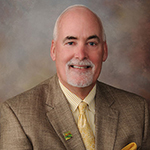Preparing the Way for a Central Valley Renaissance
Preparing the Way for a Central Valley Renaissance
Recently, Governor Newsom announced his new “Regions Rise Together” initiative. Launched in partnership with California Forward and the California Economic Summit, this initiative is in recognition of the fact that the substantial economic and job growth that the state has experienced since 2010 has been concentrated in the state’s coastal areas and has largely passed over the state’s inland regions.
In fact, by the Governor’s own calculations, residents of California’s inland regions have seen their per capita income drop dramatically while 70% of job growth in the state during this same period has occurred in the state’s coastal regions. With the Regions Rise Together initiative, Governor Newsom intends on turning his “California for All” slogan into a strategy to design a comprehensive economic plan that will ensure sustainable and inclusive growth across the state and benefit all parts of California.
The announcement of the Governor’s new initiative is welcome news for those of us who live and work in the Central Valley. West Hills Community College District covers nearly 3,400 square miles of Central California, primarily in the western portions of Fresno and Kings Counties. The District serves over 8,000 students with two accredited colleges: West Hills College Coalinga and West Hills College Lemoore. In addition to its main campus location in Coalinga, West Hills College Coalinga also operates the North District Center in Firebaugh, and the Farm of the Future located at the north end of Coalinga. We are very proud of our students and our graduates and we have an 87-year history of serving students in efficient, innovative practices such as Prior Learning Assessment that promote student success and completion.
We also know well that our students face more social, economic, and structural obstacles to student success. Many of the students that we serve are first generation college students that must balance work and family obligations with their educational goals. They are hindered by the region’s higher unemployment rates, fewer jobs, and one of the highest poverty rates in the country. While Fresno County is California’s single most productive agricultural region and one of the most productive in the world (providing more than half of the fruits, vegetables, and nuts grown in the United States), Census data show that it is also the poorest metro area in the state and the second most impoverished region in the nation.
This data also show that Valley areas (Fresno, Modesto and Bakersfield-Delano) are among the top five U.S. regions with the highest percentage of residents living below the poverty line (one of every four). In Fresno County, median income fell from $46,479 to $42,807 during the last Census period while unemployment rose to 16 percent. In addition, food stamp use climbed to nearly 18 percent.
Beyond these economic statistics, our students also suffer from the lack of broadband internet in much of rural Fresno County. This broadband inequity makes distance education impossible, severely limits tele-health and tele-medicine opportunities, and significantly hinders educational attainment and economic growth in the region. The inequity of broadband access is a key reason why poor communities stay poor, chronic illness manifests, and social mobility is stunted. This fact is borne out by statistics. Our district has 12% of the state’s population but only 6% of the state’s bachelor’s degree holders. In addition, only 11% of the population ages 25 and above possess an associate’s degree or higher. This compares to 41% statewide.
West Hills is not intimated by these statistics. We are working every day to close these achievement gaps and increase educational attainment in our region. We offer Career Technical Educational programs that build a skilled workforce for our regional employers. We assist our students financially through our President’s Scholars program and by offering free Open Educational Resources (OER) textbooks. And we are helping eliminate the broadband inequity and ensure that reliable, high-speed broadband service is available in our region by ensuring that broadband infrastructure is built throughout the West Side and by raising funds to augment the monthly internet subscription fees of our student-led households.
The Governor’s initiative promises to build on existing locally driven initiatives in our state’s diverse regions while also leveraging the investments and policy priorities of the state. West Hills looks forward to representing our students’ and our communities’ needs in this conversation and working toward a future in which educational attainment soars, infrastructure supports growth, skills gaps are eliminated, and the quality of life increases for all residents in Fresno County.
Stuart Van Horn is chancellor of the West Hills Community College District.
Original post can be found at https://caeconomy.org/reporting/entry/preparing-the-way-for-a-central-valley-renaissance

